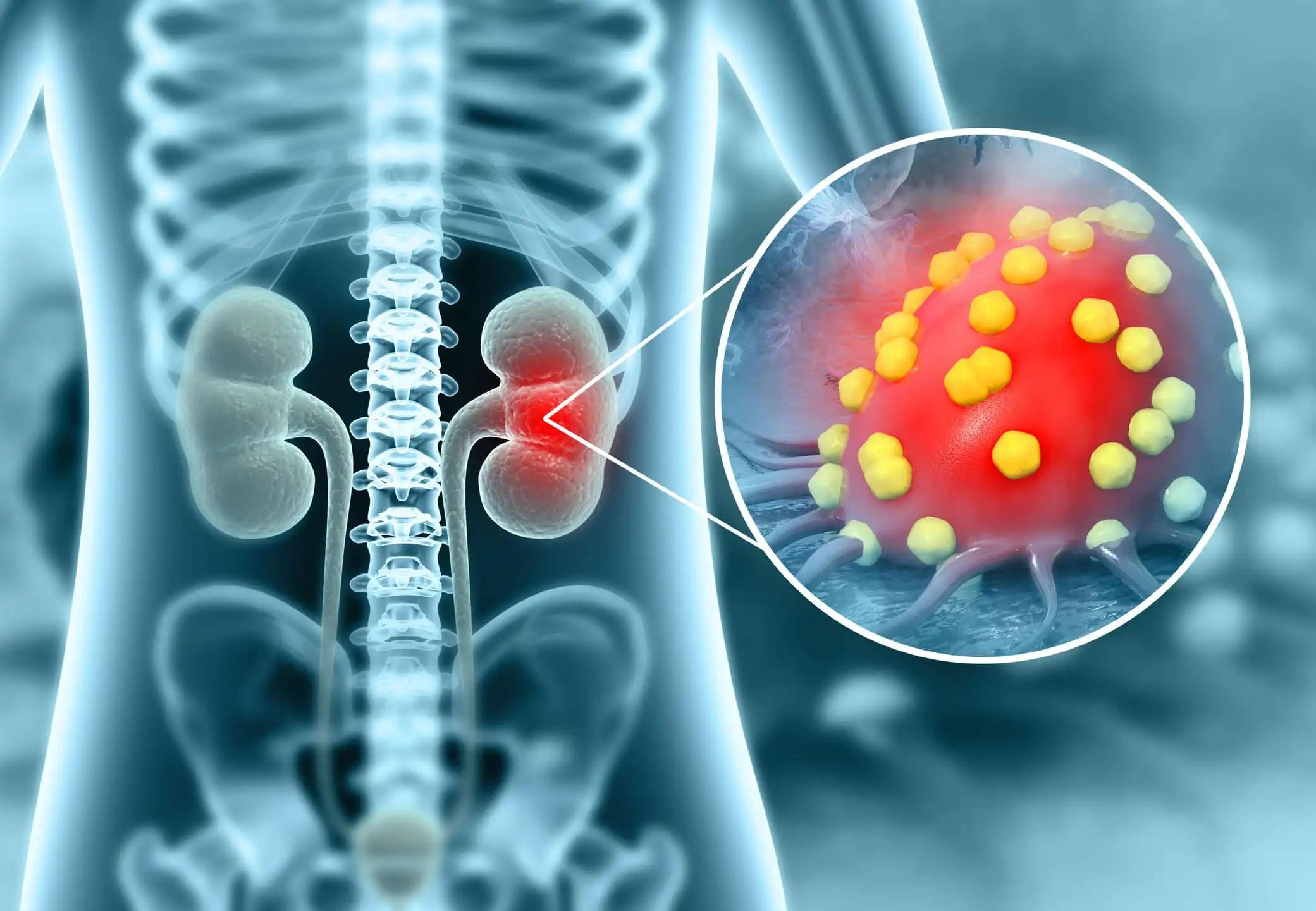KEY TAKEAWAYS
- The study aimed to investigate the efficacy of belzutifan vs everolimus in improving PFS and ORR in patients with ccRCC.
- The primary endpoints were to determine PFS and OS.
- Researchers noted that belzutifan showed PFS and ORR benefits over everolimus but did not significantly improve OS.
Compared to everolimus, Belzutifan significantly improved progression-free survival (PFS) and objective response rate (ORR) in patients with advanced clear cell renal cell carcinoma (ccRCC), who had previously received immune checkpoint and antiangiogenic agents.
Brian I. Rini and the team aimed to assess the comparative efficacy of belzutifan versus everolimus in this patient population.
They conducted a comprehensive analysis of adults with advanced ccRCC who had undergone 1–3 prior systemic treatments, including at least 1 PD-(L)1 inhibitor and one VEGFR-TKI. Participants were randomized 1:1 to receive either belzutifan 120 mg or everolimus 10 mg daily until disease progression or unacceptable adverse events occurred.
The dual primary endpoints were PFS and overall survival (OS), evaluated per RECIST 1.1 by central review. The key secondary endpoint was the ORR, also assessed per RECIST 1.1 by central review. Duration of response (DOR) and safety were additional secondary endpoints. Formal statistical testing for PFS and ORR was not performed at the final analysis, as positive results for these endpoints had already been established at the first interim analysis.
About 746 patients were allocated to belzutifan (n=374) or everolimus (n=372). At the final analysis (data cutoff: April 15, 2024), the median follow-up was 35.8 months (range 26.9–49.2); 14.5% of patients remained on treatment with belzutifan compared to 1.4% with everolimus. Belzutifan maintained a PFS benefit over everolimus (median 5.6 months vs 5.6 months; HR 0.75; 95% CI 0.63–0.88), with estimated PFS rates at 12 months (33.7% vs 17.6%) and at 24 months (17.5% vs 4.1%) favoring belzutifan.
The median OS was 21.4 months with belzutifan compared to 18.2 months with everolimus (HR 0.92; 95% CI 0.77–1.10; P=0.18). Estimated OS rates were 67.9% vs 65.8% at 12 months and 45.2% vs 41.2% at 24 months. The ORR was consistent with prior reports (22.7% vs 3.5%). Median (range) DOR was 19.3 months (1.9+–40.1+) vs 13.7 months (3.8–29.5+).
Fewer patients discontinued belzutifan (6.2%) compared to everolimus (15.3%) due to any-cause adverse events. The median duration of therapy was longer with belzutifan (7.6 months vs 3.9 months). The rate of grade ≥3 treatment-related adverse events (TRAEs) was similar between the 2 arms (39.5% vs 40.0%).
The study concluded that belzutifan continued to demonstrate benefits in PFS and ORR compared to everolimus, although a significant improvement in OS was not observed. With over 2 years of minimum follow-up, the safety profile of belzutifan remained consistent with prior reports. The final analysis results of LITESPARK-005 support belzutifan as a viable treatment option for advanced ccRCC following PD-(L)1 inhibitor and VEGFR-TKI therapy.
The study was sponsored by the Merck Sharp & Dohme LLC.
Source: https://cslide.ctimeetingtech.com/esmo2024/attendee/confcal/show/session/14
Clinical Trial: https://clinicaltrials.gov/study/NCT04195750
Rini B.I, Rodriguez C.S, Albiges L, et al. (2024). “Final analysis of the phase III LITESPARK-005 study of belzutifan versus everolimus in participants (pts) with previously treated advanced clear cell renal cell carcinoma (ccRCC).” Presented at ESMO 2024 (Abstract LBA74).



